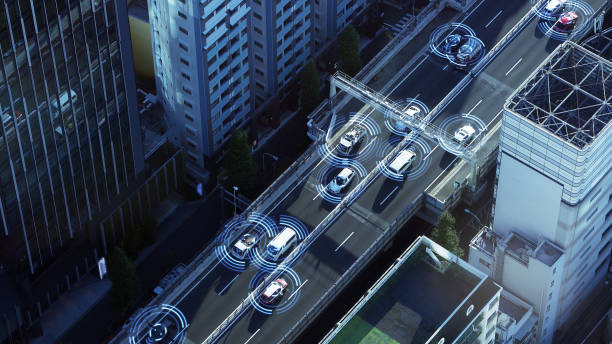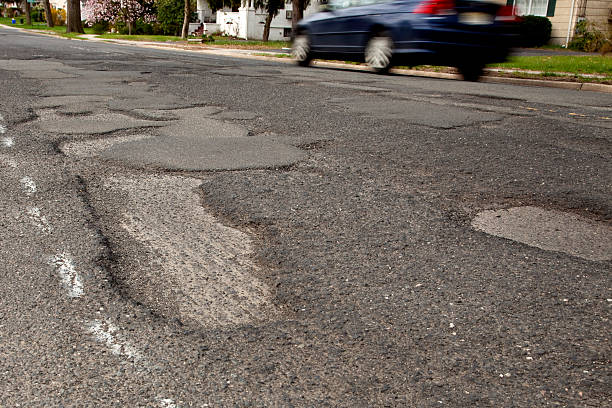
The concept of self-driving cars was initially popularized during GM’s Futurama display at the 1939 World’s Fair, where the company imagined “abundant sunshine, fresh air, and magnificent green parkways” on which cars would drive themselves, has now moved from the realm of fiction to reality.
Prototypes of this new technology have been shown by Google, Audi, Mercedes-Benz, Ford, and BMW. The prototypes, like us humans, aren’t without flaws. The good news is that they learn quickly, and they are currently learning from each other. As a result, these vehicles have a combined driving experience of nearly 40 years.
In San Jose, California, a startup called Voyage is testing an autonomous taxi service within a gated retirement community, managing other automobiles, pedestrians, golf carts, animals, roundabouts, and a variety of other obstacles.
However, for most African drivers, the era of self-driving cars appears to be a long way off. Let’s see why.
Firstly, what are self-driving cars (SDCs)?

Self-driving cars, in their most basic form, are vehicles that do not require the assistance of a human driver to operate. They are automobiles that can navigate routes without the need for human intervention. The truth is that people designed them to work that way, so we can claim that human input is necessary for their survival, but what we truly mean is that they do not need a person to operate them like most other cars.
How do SDCs work?

Self-driving cars are already a reality because of the development of automated driving systems (ADS) by businesses like Tesla, Google, Uber, and Nissan.
An internal map containing the self-driving car’s sensors is a regular thing that self-driving systems put in place. With the use of software, these sensors will be able to communicate with other vehicles in a way that allows them to do the functions that a human driver would.
The cars analyze and understand their environment using a combination of 3D laser mapping, GPS, and radar, and the most recent versions are entirely electric with a range of roughly 100 miles.
The radar is intriguing because, rather than relying on line-of-sight, it allows the automobile to see past things.
In circumstances where things get out of hand, semi-autonomous vehicles may require the human factor. Some don’t, and some aren’t even built with steering wheels.
Another interesting feature is that certain self-driving cars can connect with traffic signals that are controlled by computers.
Reasons SDCs will not work in Africa
As we’ve observed with Uber that technology that works like clockwork in the United States does not always perform the same way in other countries. It can, in fact, have the opposite effect, doing more harm than good. That is the standing Africa has with self-driving cars right now.
Here are some reasons Africa is not ready for the implementation of self-driving cars in its transportation systems.
Road infrastructure

A large percentage of roads in Africa are not paved. In rural areas, the rest of the roadways are either gravel or dirt roads. Apart from the enormous number of country roads, important roads in cities such as Lagos have poor road conditions such as potholes, lack of road markings, and damage to road signs, all of which would make it difficult for a self-driving car to navigate effectively.
Apart from the status of our roads, drivers in Africa face a slew of unforeseeable obstacles. Hundreds of obstructions, ranging from taxis to people and even livestock, would cause self-driving cars to become confused.
Innovative Tech Solutions, Tailored for You
Our leading tech firm crafts custom software, web & mobile apps, designed with your unique needs in mind. Elevate your business with cutting-edge solutions no one else can offer.
Start NowIn order for self-driving cars to be viable and safe, Africa would first need to ensure that the necessary infrastructure was in place. This includes modified traffic lights that can communicate with the car’s artificial intelligence (AI) and battery recharge facilities. For a struggling economy, this is a massive effort that will take decades to complete.
Safety
Safety is a vital consideration to keep in mind because we are able to discuss driving cars because we are safe. Road traffic accidents cause a lot of deaths, and while it appears that autonomous automobile systems could help minimize this, what happens if something goes wrong with the car system and there is no human involvement to fix it?
If SDCs are going to be implemented, not everyone will be able to get them so there will be a mix of autonomous and regular cars on the road. While self-driving cars will be programmed to drive safe, follow all the rules of the road, drive within the speed limit and all that, what about the human drivers on the road?
In the city of Lagos, Nigeria, It is a regular thing for public bus drivers to run stop signs and red lights. Motorcyclists are even a whole other gist with the way they ply the roads so recklessly, you’d think they have spare lives at home. Even car owners randomly stop in the middle of the road, text and take calls while driving and a whole lot else. I am almost sure that it is the same case in many other African cities.
In other to successfully implement self-driving cars in Africa, all the current misbehaviour on the road need to be addressed and corrected for the safety of everyone and we all know that will quite a task.
Regulations

Policymakers and regulators globally are struggling to keep pace. The industry largely self-regulates, mainly determining public road safety readiness. Regulators largely lack criteria for these decisions.
It’s crucial to validate self-driving software performance in real-world situations but only through post-comprehensive safety testing. Regulators should establish standard tests and mandate companies to evaluate their algorithms on standard data sets.
The field tests for self-driving cars (SDCs) must be rigorous, and specifically designed for African roads. Establishing such tests is challenging.
Cost of Implementation
Disregarding infrastructure costs, cars need advanced technology to navigate roads effectively. This necessitates the use of specialized sensors, mapping systems, and data storage, all of which are costly.
In 2021, a fully autonomous vehicle costs about $170,000, making it unaffordable for most people. In the United States, it will take years for the technology to become reasonably priced for the general public. This could take even longer, potentially decades, in underdeveloped countries.
Maintenance and costs

Let’s take a look at the upkeep and costs of operating a self-driving car. The cost of maintaining a self-driving car and its applications, similar to the cost of operating electric cars, is another element to consider.
If any issues were to develop with the hardware or software of the SDC, maintenance would be quite a problem as there will barely be any SDC parts dealers or specialists to take care of these faults.
Based on these considerations, it would be prudent to put in place certain measures before declaring Africa suitable for self-driving cars.
The Bottom Line
Electric, self-driving automobiles are unquestionably on the horizon. In Africa, however, it will be decades before they are a viable mode of transportation. Meanwhile, drivers should consider reducing their carbon footprint by switching to smaller, more fuel-efficient engines.
Before You Go…
Hey, thank you for reading this blog to the end. I hope it was helpful. Let me tell you a little bit about Nicholas Idoko Technologies. We help businesses and companies build an online presence by developing web, mobile, desktop, and blockchain applications.
We also help aspiring software developers and programmers learn the skills they need to have a successful career. Take your first step to becoming a programming boss by joining our Learn To Code academy today!
Be sure to contact us if you need more information or have any questions! We are readily available.











